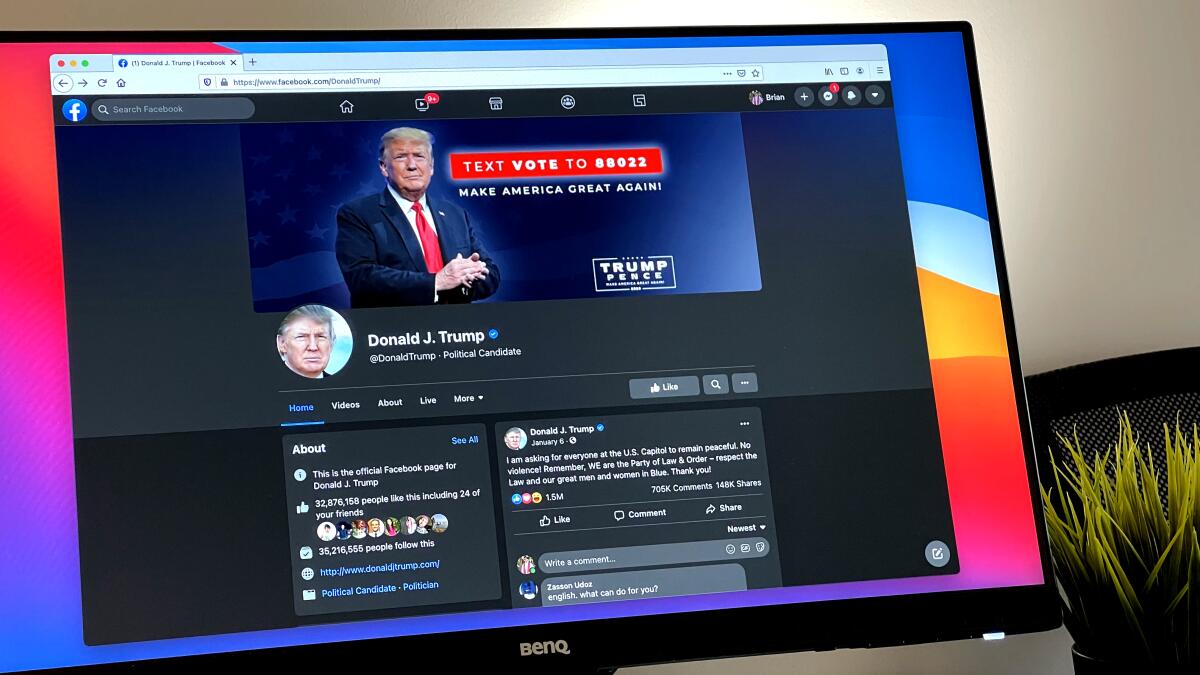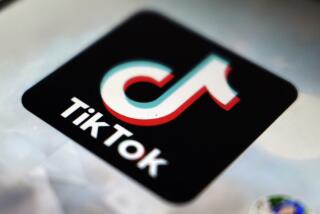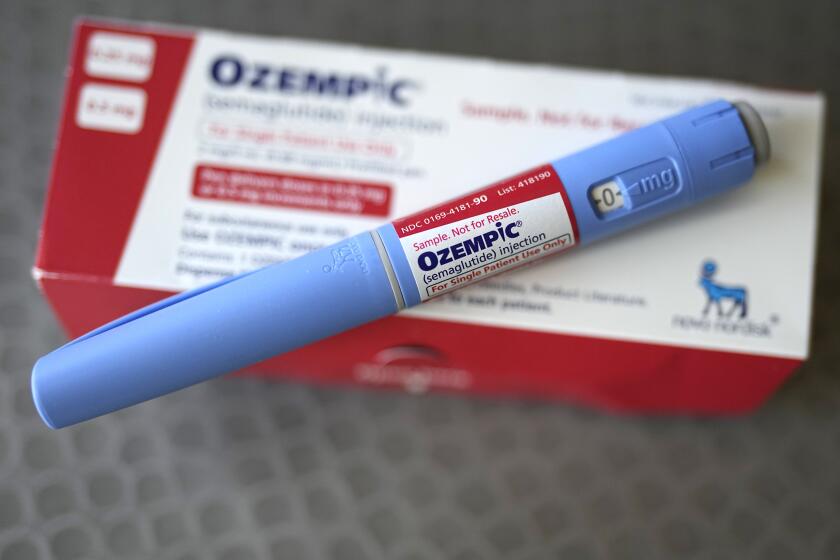Facebook to be Trump-free at least until 2023

- Share via
Former President Trump’s abject failure to build a big audience for his personal website this year shone a spotlight on just how much he depended on the White House and, especially, major social media networks to amplify his voice. And on Friday, one of those networks — Facebook — announced that it will continue to keep Trump off its platform until Jan. 7, 2023, the two-year anniversary of his suspension.
It’s probably worse news than Trump had expected, but, given that he seems to think he’ll be back in the Oval Office by August, Facebook may not be top of mind for him.
For Facebook, though, the announcement was a mixture of positive steps and not-so-positive ones. On the plus side, the network embraced more than three-quarters of the improvements that its Oversight Board called for last month when it reviewed Trump’s suspension. It also eliminated a rule that let politicians post rule-breaking content simply because they’re politicians. But it appeared to leave in place another inexplicable practice: its refusal to apply its rule against false and deceptive advertising to politicians who are trying to win elections.
Trump’s egregious behavior leading up to, during and in the immediate aftermath of the Jan. 6 riot by his supporters at the U.S. Capitol earned him a permanent ban from Twitter but only an indefinite suspension from Facebook. The social network’s Oversight Board — a panel of scholars, human rights advocates and other notables from around the world — faulted Facebook on a number of fronts, saying its actions weren’t transparent or grounded in published rules. Among other things, it told Facebook to decide within six months how long Trump’s suspension should last.
In answering that question, Facebook decided that the penalty for public figures whose posts “incite or celebrate ongoing violent disorder or civil unrest” would be a suspension of one month to two years. This is, in effect, a heat-of-the-moment penalty, although the suspension could be renewed “if we determine that there is still a serious risk to public safety.”
Still, you have to wonder why Facebook would feel compelled to keep a seat warm for any length of time for political figures who violate its rules when the stakes are at their highest. Trump egged on a group of people who were trying to overturn the presidential election. I’m having trouble imagining a more irresponsible, injurious and un-American thing for an incumbent to do, given that our government is built around the public’s faith in the elections we hold.
The Oversight Board had cautioned that the company had a responsibility to protect free expression as well as public safety. “Although political figures do not have a greater right to freedom of expression than other people, restricting their speech can harm the rights of other people to be informed and participate in political affairs,” the board maintained.
But that just buys into the idea that Facebook is a public square, when it’s really a very powerful amplifier within the public square online. The company is under no obligation to offer that amplifier back to people who’ve used it for egregious purposes. At least under the company’s new rules, public figures like Trump who regain their voices on Facebook and its Instagram subsidiary will be subject to “rapidly escalating” penalties, potentially including expulsion, if they continue to cross the line.
To its credit, Facebook dropped the forehead-smacking “newsworthiness” policy that allowed politicians occasionally to post content that clearly violated Facebook’s standards simply because they were politicians. “Instead, we will simply apply our newsworthiness balancing test in the same way to all content, measuring whether the public interest value of the content outweighs the potential risk of harm by leaving it up.” wrote Nick Clegg, Facebook’s vice president of global affairs.
If only the social network would take the same approach to candidates’ political advertisements. Facebook Chief Executive Mark Zuckerberg has publicly chafed at the idea of fact-checking politicians’ statements, even as the company deploys a battalion of third-party fact checkers to battle false and misleading information on its network.
Zuckerberg has famously said that his company shouldn’t be “the arbiter of truth,” but it can’t afford to be a firehose of lies, either. That’s why it has tried to crack down on COVID-19 misinformation, fake accounts and anti-vaccine propaganda, among other things. The company’s new newsworthiness policy recognizes that politicians should be treated the same as everyone else on the platform. The same should be true for all of Facebook’s policies.
More to Read
A cure for the common opinion
Get thought-provoking perspectives with our weekly newsletter.
You may occasionally receive promotional content from the Los Angeles Times.










